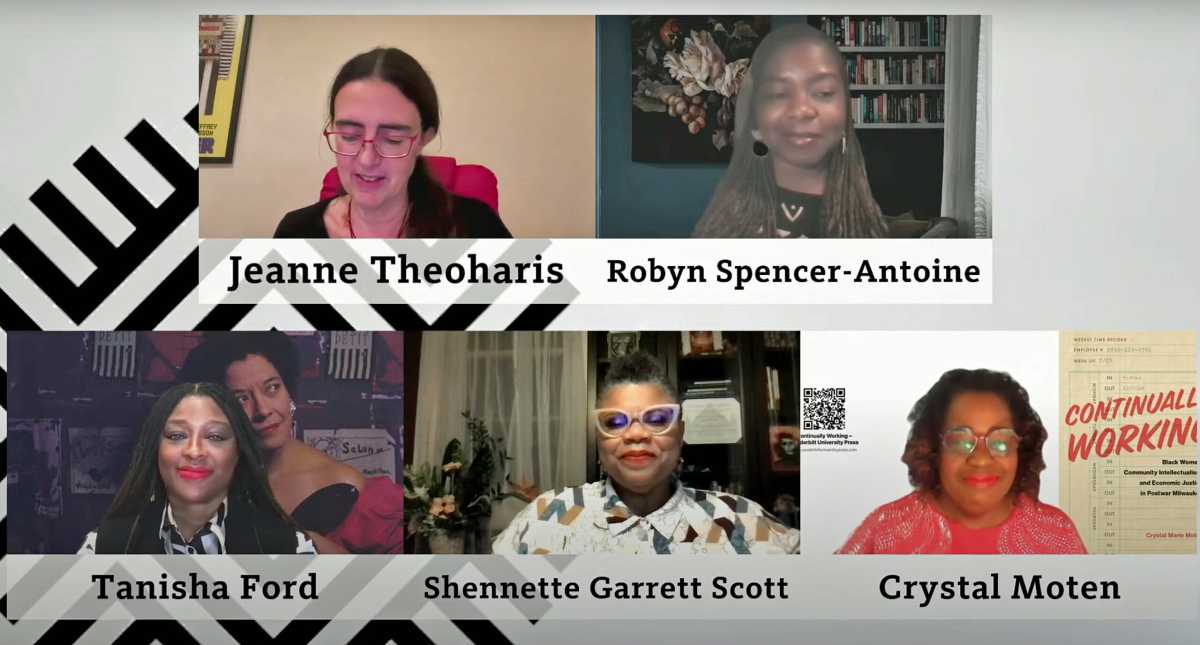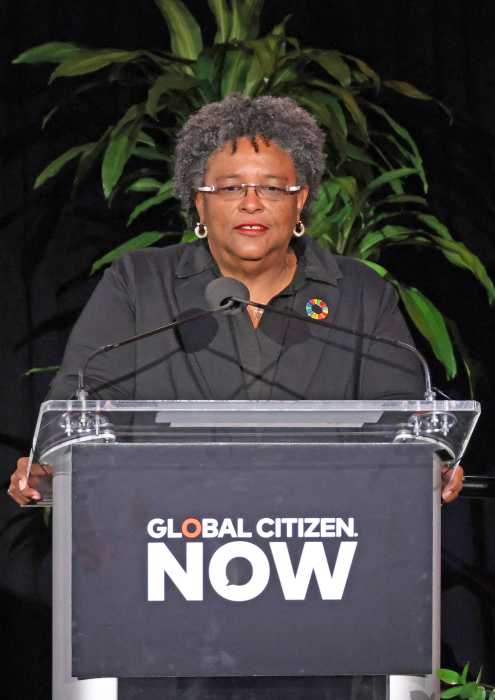The life and activism of Mollie Moon, also known as the Grand Dame of Harlem, has inspired history professor Tanisha Ford to explore Moon in her latest book “Our Secret Society: Mollie Moon and the Glamour, Money, and Power behind the Civil Rights Movement” (2023).
Ford, was one of three panelists at the virtual conversation on “Black Women’s Work Towards Economic Self-determination,” as well as fundraising and economic support of the Black Freedom struggle organized by the Schomburg Center for Research in Black Culture, at the New York Public Library (NYPL) on Dec. 7.
Co-curators Jeanne Theoharis and Robyn Spencer-Antoine moderated the event with panelists Ford, Shennette Garrett Scott and Crystal Moten.
Ford is a professor in history at the CUNY Graduate Center while Scott is author of “Banking on Freedom: Black Women in U.S. Finance Before the New Deal” (2019). Moten is the author of “Continually Working: Black Women Community Intellectualism and Economic Justice in Postwar Milwaukee” (2023).
According to Ford, based on all the newspaper accounts she was able to find, Moon could be described as a socialite.
“I thought that this book would be one about the politics of hostessing, using my interest in material culture to think about how Black women hosted events, who they invited to these events, the purpose of these events,” Ford said.
After Ford realized that most of Mollie Moon’s public events were fundraisers, she said it opened up a whole new line of questioning for her about Moon’s life and how the civil rights movement was funded.
Scott had always wanted to be a teacher and she was one of the first persons to go to college in her family.
She used to work in the mortgage industry, where she saw people achieving their hopes and dreams, as well as people who had so little.
“I really wanted to focus on business history that I wanted to kind of understand the world that I was working in, where that had come from, and so I knew I wanted to study women in business in the National Negro Business League. When I went to actually study it, the women just weren’t there so I had to go looking for them,” she stated as her inspiration for her book.
Moten was thinking particularly about Black working women’s contributions to Black Freedom and local Black Freedom movements, specifically the ways in which knowledge is transmitted and disseminated in communal environments. This served as inspiration for her book, along with her personal experience.
Next, Scott and Moten shared some of the central figures in their books, one of whom is Maggie Nina Walker. According to Scott, Walker was born enslaved and although she experienced tragedies in her life, she eventually operated an insurance company.
“The independent order of St Luke, they had over 100,000 members. They were all over the country and her economic vision touched the lives of not just the 100,000+ members, but those members’ families and communities all over the country,” Scott added.
Scott knew that in order to be able to really uncover the stories that I needed to, she needed to really understand the community of women that helped to shape Walker’s vision, but also those who were helping her to build these opportunities for other women.
“This kept her laser focused on meeting the needs of the women in this community which is part of what made this organization so successful,” she continued.
In referencing Walker, Moten discusses the last chapter of her book briefly, where she writes about an organization called Project Equality, especially in the urban Midwest.
“What was interesting about the office in Milwaukee, Wisconsin was that it was run and organized by Black women who both had connections to the Civil Rights and the welfare rights movements in the city. These local women had been active in the mass movements of the mid to late 1960s, and then parlayed their activism into project equality which had a focus of equal employment,” Moten continued.
She added that it was the work of these women, which helped pass the 1964 Civil Rights Act.
Then, Ford discussed why she thinks people should know more about Mollie Moon.
She has been involved in movements including the New York City History Movement, Civil Rights Movement, Black Freedom Movement, and histories of black communism.
“It’s really an honor to write this book about her to introduce people to her through my perspective as a Black feminist historian,” Ford said.
The welfare rights movement is a little known one that Moten writes about in her book. According to Moten, the movement takes place during and beyond the civil rights movement, and the leaders were poor black mothers who were advocating for resources for themselves and for their families from the state and from the nation.
“What they thought was that no person should live in poverty in one of the richest nations on this globe. So there’s a responsibility that the nation has to its people, and part of that responsibility is making sure that people have the basic necessities to live and not die,” she said.
For Scott, she would like people to learn more about a woman named Matilda Scott. She was a woman who, almost 50 years after the civil rights movement, was writing to the federal government demanding the $18 refund that the Freeman’s Bank owed her mom.
According to Scott, this is a lesson on “respect, for being able to use and really dig into the words that are created by African-American women. So often their lives are mediated by others, but when we are able to have a window or be able to capture their voices, we should really dig into that.”
Those interested in borrowing the authors’ books from NYPL can find information here:
Those interested can purchase Moten’s book from Amazon here: https://www.amazon.com/Continually-Working-Community-Intellectualism-Liberation/dp/0826505570


























